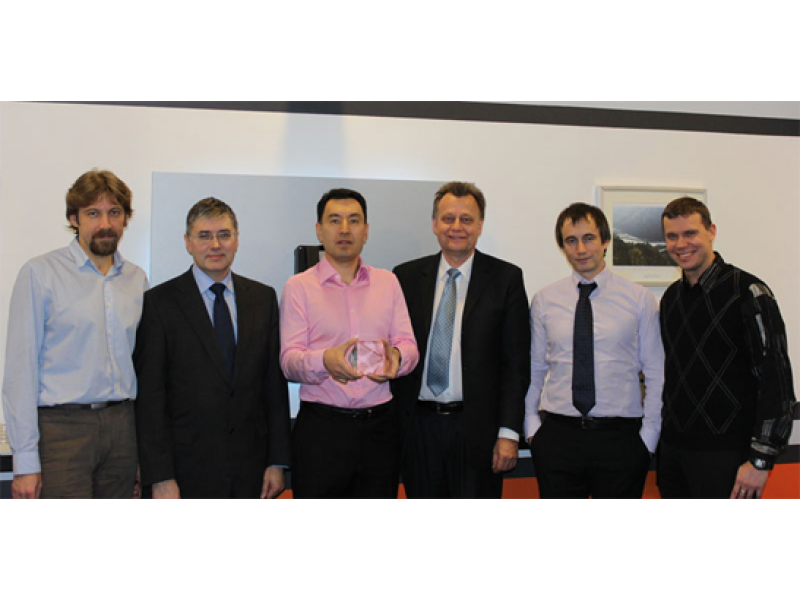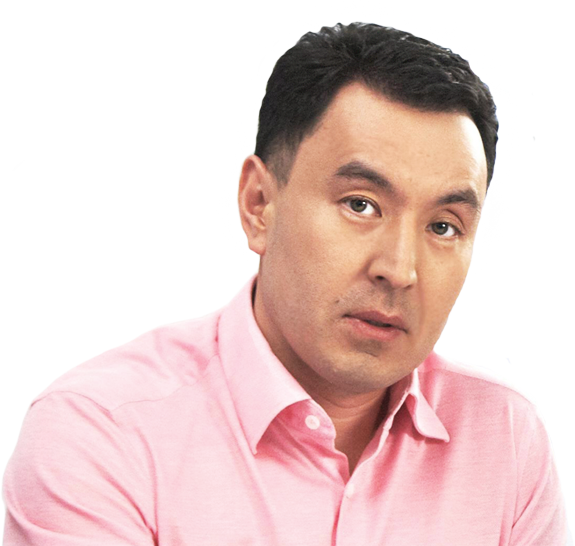Media
Nomad business


He is a citizen of Russia, although has been living in Kazakhstan in recent years, and this summer is planning to move to Singapore. It all does not prevent Serikbay Bisekeev from having headquarter in Petersburg and selling the products from his enterprise all over the world. Such dispersion brings its results. The president of Arman holding Serikbay Bisekeev was named the best entrepreneur of the year in B2B category as a result of Ernst&Young contest “Entrepreneur of the Year”.
The most expensive hotel in Moscow. At the tables covered with long white tablecloths – co-director of Sberbank CIB Ruben Vardanyan, the founder of Vimm-Bill-Dann David Yakobashvili, the owner of Il-Patio and Planeta Sushi Rostislav Ordovsky-Tanaevsy Blanco, the creator of Invite, Bystrov and Velle Sergey Vykhodtsev and dozens of other businessmen, who we gathered by Ernst&Young for the contest “Entrepreneur of the Year”.
A man in a tuxedo and bow-tie comes up the stage and says simple words: “I always tell people that I do not differ from them. I was born in a village, I have the same Soviet education as lots of us do. Russia is the smartest country, but we sell either raw materials or products of military industry created in the USSR. Products, which would be launched and lifted to world market after the collapse are next to nothing. I am glad that we managed to make it. I wish you all good luck and not to put off, but to start immediately”.
These words are almost totally true. Products from Arman holding are sold not only in Russia, but in India, Iraq, Myanmar, Singapore, Kazakhstan and Germany.
Nevertheless, Serikbay Bisekeev has not stopped on that. He is building wind power station in Kazakhstan and participates in the project of a gas pipeline to China. An also Serikbay was born not in a village, but in a small settlement called Kamyshnoe – 232 km away from the regional center, Kustanay city. How could a boy from Kazakh settlement have become the best Russian entrepreneur?
Brief-case
We are sitting in a white and orange conference room with some brutal machines hanging on the walls, which seem to be public phones at first sight (however, these are the explosion-proof means of industrial communication, produced by Arman holding). Generally speaking, Serikbay has no place to hold meeting in his own company any more. He does not have his own office here. Or anywhere else. A new brief-case near the table is now Serikbay’s office. It compulsory contains tablet PC which helps the entrepreneur to consult with his colleagues via Skype from anywhere in the world.
The entrepreneur does not approve pathos and luxury and is pleased or better say, proudly tells that he drives a second hand car despite the turnover of his companies makes around 2 billion roubles.
“Some people love to demonstrate their wealth – super cars, super offices. Whole my life I was using second hand cars, renting apartments, buying almost nothing and think that it benefits the business”, says Serikbay. “Just take a look – years ago when I was engaged in mobile phones lots of companies invested in their offices. No doubt, it is more pleasant to invite your partners into a beautiful office, and the like… But at the same time people reduced the amount of money in turnover. And the market was growing, you needed money, which had already been spent to office-car-apartment things. As a rule, such stories usually ended up in tears: companies reduced their market share. And the fewer tangible assets you have, the easier it is to live - you can continue working from any part of the world. No raider can harm you”.
20 irons
However, Serikbay has one piece of prestige – a beautiful phone number. “I got it in 1995 when started with GSM”, the businessman notes.
But even before that a lot of things happened. Serikbay was studying in a sports class and by the time of graduating the school he had already got his Candidate Master of Sports degree in basketball. Thanks to that he could have entered any Kazakh university without entrance exams, but preferred to go to Leningrad to study for design engineer – to invent Soviet Mercedeses.
Early 1990s were equally hungry for everybody, and student Bisekeev became a suitcase trader. “We worked with electric equipment – drills, irons and the like – and took it to the Baltic States. We even did not enter Poland. We took as much as each could carry in hands. I could carry 20 irons at a time. There was nothing funny in it. The fewer people knew about your plan, the more chances for survival you had”. Again, the sport helped to survive. In the institute Serikbay started boxing and gained one more Candidate Master of Sports degree.
Up to a certain time everything went ordinary: together with his university groupmates Serikbay opened a disco, then broker company in 2x2 meter-sized room near cultural center named after Kirov. But in the middle of 1990s Petersburg met innovative technologies – mobile phones. Serikbay assures he and his partner were nearly the first to sell GSM mobile phones in Russia. “Chichvarkin appeared far much later. We were in wholesales together with a shop. Our competitors took loans and credits and were growing slightly faster, but the crisis of 1998 made them bankrupt. And we survived and I decided to continue my studies”.
In Stockholm business school he defended a thesis on the topic “Establishing retail shops selling mobile telephones near subway”. It sounds weird to talk about this now, but in 1999 there were no (or almost no) such shops. “Those days nobody believed that people who use subway will have mobile phones. Everyone put their stakes on two categories of buyers – criminals and businessmen. Wealthy people in cars. Whereas I rented trade spots in shops near subway – next to shawarma and stockings”. Premises were almost free of charge, mobile phones were taken on consignment of my own name, I had only show cases and shelves. At the peak of our activity we had around 20 trade spots and I was sure market would continue this way”. But Bisekeev’s partner got tired of waiting and the business was sold. Shortly after that near-subway shops market burst out, but Serikbay is not sorry he did not enjoy that success: “I knew that sooner or later Moscow people with all their money, allowances and relation in producing offices would sweep everybody away”.
And most importantly – thanks to separating from the partner Serikbay invented his first big business. He remained loyal to telecommunications, but found a new and almost empty niche – communications for industrial enterprises.
Year
It would be hard to believe, but the first customer of Bisekeev’s new company was Gazprom Neft.
Stockholm business school gave me truly good knowledge and prior to starting my own business, I simply made market research. I analyzed who else plays here. It turned out that there was nobody except for a producer, utilizing designs and development from Soviet Union times. Russia had no digital products at all. We found a German company Neumann Elektronik, those times it was like Mercedes in motor business. And we started presenting their products and interest in Russia.
At first not everything went smooth. If we put it mildly. Within the first year of operations there was not a single order signed up. Not a single piece of intercommunication equipment was sold! As a result in order for the project to survive, the entrepreneur sold his apartment. It was a two-room flat recently built near Ice Palace near subway station “Bolshevik Avenue”. “I sold it for $24 000. It was my first child had just been born, and the three of us were living there”, Serikbay recalls.
He cannot describe his mental condition of those times as those with very bright colors: “Everything was on the line, all the bridges burnt; there is nothing further but the edge. I was travelling, calling, selling, meeting with people. From one of Japanese top-managers I learnt that Russians need to do two things in order to be successful: to focus, concentrate on something particular and have patience. If you keep hitting one point, you will break through it. And I was breaking through. We knew that oil and gas companies will have to build-up infrastructure and will thus need us”.
The entrepreneur “hit his point”. LUKOIL, Surgutneftegas, NOVATEK, Rosneft and SIBUR started buying equipment from Bisekeev. In 2005 he decided to launch his own production line in Saint-Petersburg with Armtel brand. Today Bisekeev is in Top-10 of producers in his segment and is planning to become #1: “That German company from my past is on the verge of bankruptcy now and the people who offered us to sell their equipment in Russia ten years ago are working in our German office today”







